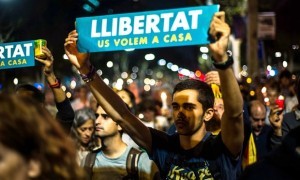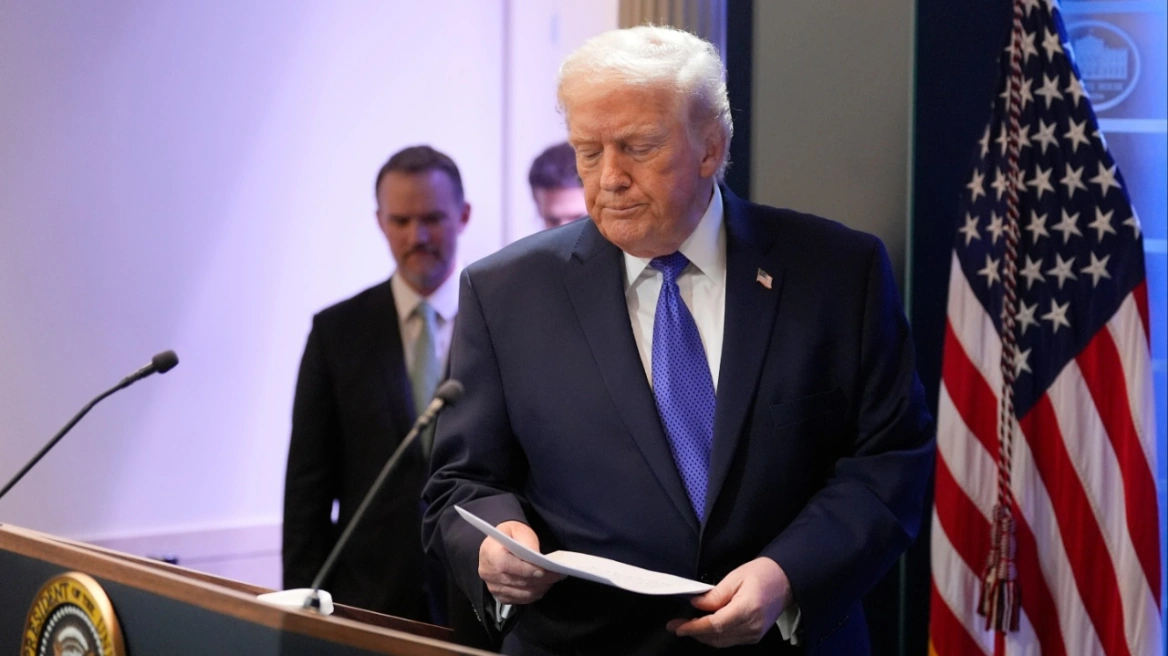The Spanish government is to suspend Catalonia’s autonomy and impose direct rule after the region’s president refused to abandon the push for independence that has pitched Spain into its worst political crisis for 40 years.
The announcement of the unprecedented measure came after the Catalan president, Carles Puigdemont, threatened a unilateral declaration of independence if the Spanish government did not agree to talks on the issue.
In a letter sent on Thursday morning to the Spanish prime minister, Mariano Rajoy, Puigdemont said talks were the only way to avert the crisis, as the deadline set by Madrid for the region to abandon its independence plans passed.
The Catalan leader also accused the Spanish authorities of seeking to repress the independence movement after two of its leaders were denied bail by a national court judge earlier this week and said that using article 155 of the constitution to impose direct rule from Madrid would force his hand.
“The suspension [of the independence declaration] is still in place,” he wrote. “The [Spanish] state is entitled to decide to apply article 155 if it secures the senate’s approval. But despite all our efforts and our desire for dialogue, the fact that the only reply we have been given is that autnonomy will be suspended suggests that you do not understand the problem and do not wish to talk.
“If the [Spanish] government persists in hindering dialogue and continues with its repression, the Catalan parliament could, if it deems appropriate, proceed to vote on the formal declaration of independence.”
In a statement on Thursday morning, the Spanish government noted that Puigdemont had again failed to confirm whether or not independence had been declared, adding: “At an emergency meeting on Ssuspendaturday, the cabinet will approve measures to be put before the senate to protect the general interest of Spaniards – including the citizens of Catalonia – and to restore constitutional order in the autonomous community.”
The government also criticised the Catalan authorities for “deliberately and systematically seeking institutional confrontation despite the serious damage it’s causing to co-existence and Catalonia’s economy”.
The unilateral Catalan independence referendum held on 1 October has plunged Spain into its worst political crisis since its return to democracy four decades ago.
Although Puigdemont has claimed that the poll – in which 90% of participants opted for independence – has given his government the mandate to forge a sovereign state, he has ignored Rajoy’s demand to clarify whether or not independence has actually been declared.
He has instead proposed that the effects of an independence declaration be suspended for two months while both sides embark on dialogue to resolve the standoff.
On Wednesday, the Spanish prime minister had issued a last-minute call for Puigdemont to calm the situation and act in the interests of all Spaniards and Catalans.
Speaking in parliament, Rajoy asked Puigdemont’s colleagues to persuade him “not to make any more problems” that would “oblige the government to make decisions that would be better never to make”.
The Spanish government has said it would be willing to hold off on imposing 155 if the Catalan government were to call a snap regional election without a confirmation of independence. However, the Catalan foreign minister, Raül Romeva, insisted such a move was not being considered, telling reporters in Brussels on Wednesday: “Elections from our perspective are not an option.”
Tensions in the already fraught impasse rose further earlier this week after a judge at Spain’s national court denied bail to two prominent Catalan independence leaders who are being investigated for alleged sedition.
Jordi Sánchez, the president of the Catalan National Assembly (ANC), and Jordi Cuixart, the president of Òmnium Cultural, are accused of using huge demonstrations to try to stop Spanish police officers following a judge’s orders to halt the referendum.
Their detention prompted huge protests across Catalonia on Tuesday. On the same day, Spain’s constitutional court announced that it had annulled the Catalan law that had paved the way for the referendum, adding that the right to “promote and enact the unilateral secession” of a part of the country was not recognised in the Spanish constitution.
According to the Catalan government, about 2.3 million of Catalonia’s 5.3 million registered voters – 43% – took part in the referendum. It says 770,000 votes were lost after Spanish police stepped in to try to halt the vote.
Source: theguardian.com
Ask me anything
Explore related questions





